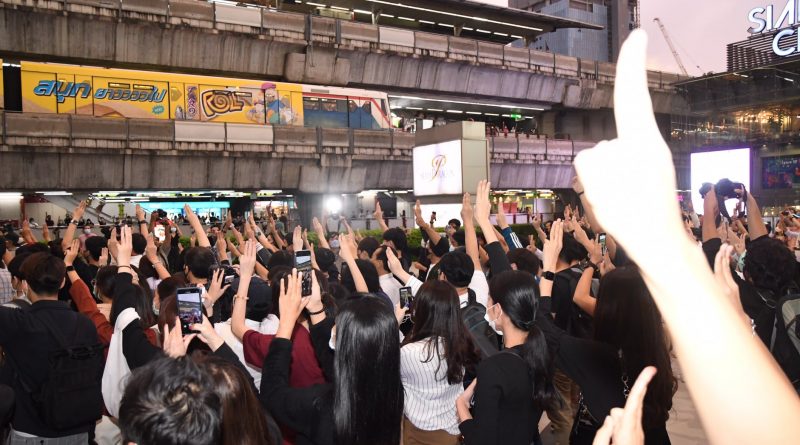Thailand Cracks Down on Continued Anti-Government Protests
Lauren-Marie Diawatan
Staff Writer
On March 8, Thailand’s Bangkok Criminal Court detained three pro-democracy activists on the charge of insulting the monarchy, according to Human Rights Watch. Al Jazeera states that 15 other protesters were indicted over attending anti-government rallies on charges of sedition and disobeying a ban on public assemblies. The pro-democracy movement arose last year when youth protesters began demanding the resignation of Prime Minister Prayuth Chan-Ocha, who led the 2014 coup, and the reformation of the Thai monarchy.
Al Jazeera furthers that demonstrators gathered in Bangkok demanding the release of some of the protest leaders on March 6. Protesters shouted for authorities to “release our friends” as they surrounded a criminal court. Groups burned photographs of the king, chanting for the government to “Abolish 112.” Protesters accuse the prime minister of manipulating the 2019 election rules in his favor and feel that the current constitution gives the king too much power.
The three leaders, Panusaya “Rung” Sithijirawattanakul, Jatapuat “Pai” Boonpattararaksa, and Panupong “Mike” Jadnok, were charged with lese majeste, the insult of a monarch, for their speeches demanding monarchy reform at a rally on September 19, 2020. Their cases resemble the court decision to place four other pro-democracy activists in pretrial detention in February. Human Rights Watch explains that the court denied the activists’ bail requests multiple times, despite Thailand’s ratification of the International Covenant on Civil and Political Rights, which allows bail requests or a faster trial for those denied bail. Jadnok felt his group and him were undeterred with being jailed, stating that their work was “only the beginning,” and that their cause would “go ahead even without us,” Al Jazeera reports.
Article 112 outlines lese majeste in Thailand’s criminal code: whoever “defames, insults, or threatens the King, the Queen, the Heir-apparent or the Regent” will face incarceration of three to 15 years. According to Al Jazeera, the deputy commissioner of Bangkok Metropolitan Police Bureau emphasized that “protests are illegal” at a police conference, and anyone who participates or invites others to “is breaking the law.” In December 2020, a spokesperson for the UN High Commissioner for Human Rights called for Thailand to “bring this law in line” after Thai authorities charged 35 protesters, including a 16-year-old, under Article 112. The statement urges the country to stop using criminal charges against its citizens for “exercising their rights to freedom of expression and peaceful assembly.”
NPR reports that activist leader Panusaya Sithijirawattanakul first spoke out against the monarchy in August 2020 as a student at Thammasat University, reading a manifesto calling for the reform of Thailand’s monarchy. In an interview, she felt that “the monarchy has to be under law like everyone else in this country,” stating that the manifesto was the “first level” to affect change in the country. Amnesty International explains that protests began in early 2020 with university students and schoolchildren primarily leading the movement, organizing, and participating in protests. The main demands of the protesters include the dissolution of the parliament, the reformation of the monarchy, the revision of the military-centric constitution, and the end of intimidation and harassment tactics against those critical of the government.
International students were warned against participating in protests or risk losing their visas, reports Reuters. The day after Bangkok’s Criminal Court order, the Asian Institute of Technology sent out an email, asking for students to “be respectful of the laws and policies of the host country Thailand.” Despite the threats, foreign students have taken to the streets in protest of Thailand’s government. While the institution claims it was passing on a request from the country’s immigration bureau, the chief of the immigration office of the university’s province explained no request was made concerning foreign students.

